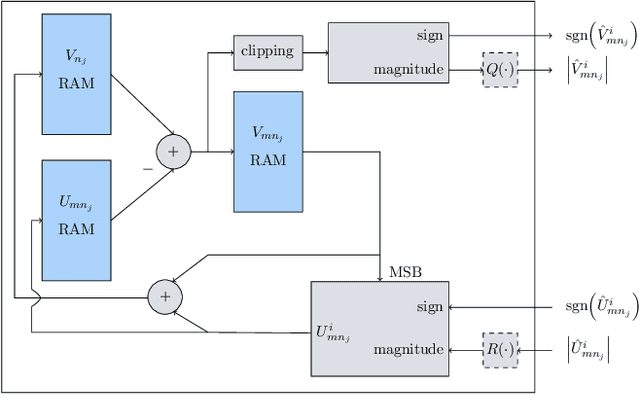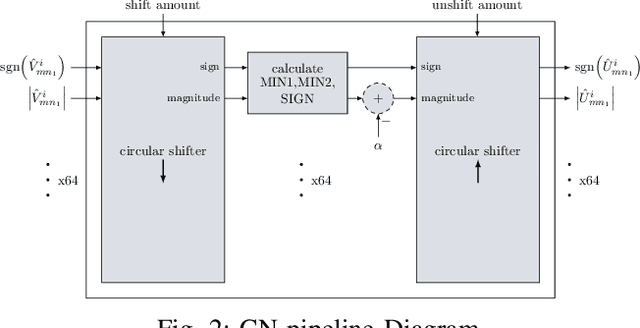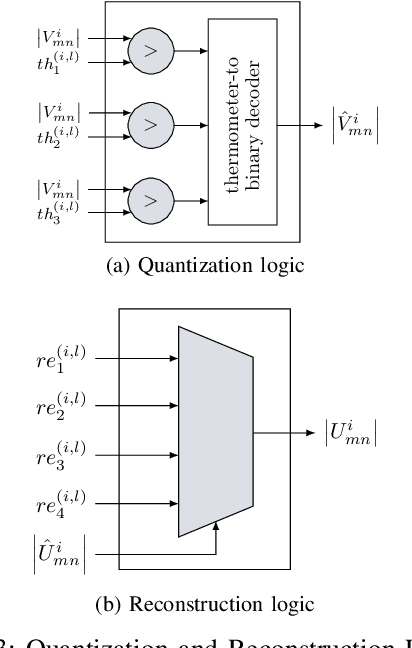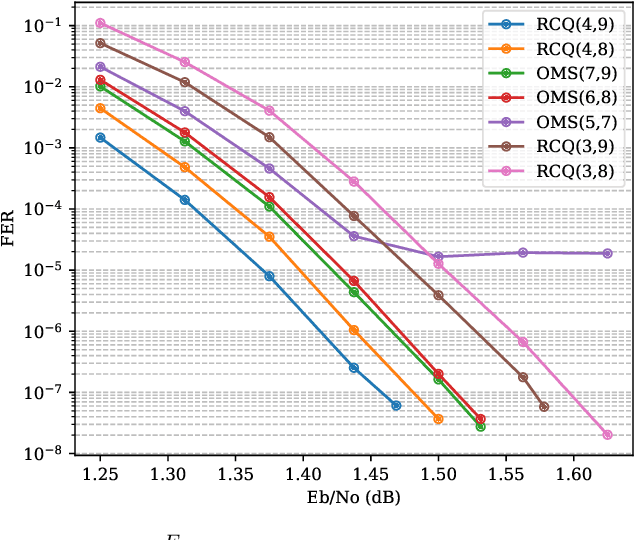Dariush Divsalar
LDPC Decoding with Degree-Specific Neural Message Weights and RCQ Decoding
Oct 24, 2023Abstract:Recently, neural networks have improved MinSum message-passing decoders for low-density parity-check (LDPC) codes by multiplying or adding weights to the messages, where the weights are determined by a neural network. The neural network complexity to determine distinct weights for each edge is high, often limiting the application to relatively short LDPC codes. Furthermore, storing separate weights for every edge and every iteration can be a burden for hardware implementations. To reduce neural network complexity and storage requirements, this paper proposes a family of weight-sharing schemes that use the same weight for edges that have the same check node degree and/or variable node degree. Our simulation results show that node-degree-based weight-sharing can deliver the same performance requiring distinct weights for each node. This paper also combines these degree-specific neural weights with a reconstruction-computation-quantization (RCQ) decoder to produce a weighted RCQ (W-RCQ) decoder. The W-RCQ decoder with node-degree-based weight sharing has a reduced hardware requirement compared with the original RCQ decoder. As an additional contribution, this paper identifies and resolves a gradient explosion issue that can arise when training neural LDPC decoders.
FPGA Implementations of Layered MinSum LDPC Decoders Using RCQ Message Passing
Apr 19, 2021



Abstract:Non-uniform message quantization techniques such as reconstruction-computation-quantization (RCQ) improve error-correction performance and decrease hardware complexity of low-density parity-check (LDPC) decoders that use a flooding schedule. Layered MinSum RCQ (L-msRCQ) enables message quantization to be utilized for layered decoders and irregular LDPC codes. We investigate field-programmable gate array (FPGA) implementations of L-msRCQ decoders. Three design methods for message quantization are presented, which we name the Lookup, Broadcast, and Dribble methods. The decoding performance and hardware complexity of these schemes are compared to a layered offset MinSum (OMS) decoder. Simulation results on a (16384, 8192) protograph-based raptor-like (PBRL) LDPC code show that a 4-bit L-msRCQ decoder using the Broadcast method can achieve a 0.03 dB improvement in error-correction performance while using 12% fewer registers than the OMS decoder. A Broadcast-based 3-bit L-msRCQ decoder uses 15% fewer lookup tables, 18% fewer registers, and 13% fewer routed nets than the OMS decoder, but results in a 0.09 dB loss in performance.
 Add to Chrome
Add to Chrome Add to Firefox
Add to Firefox Add to Edge
Add to Edge